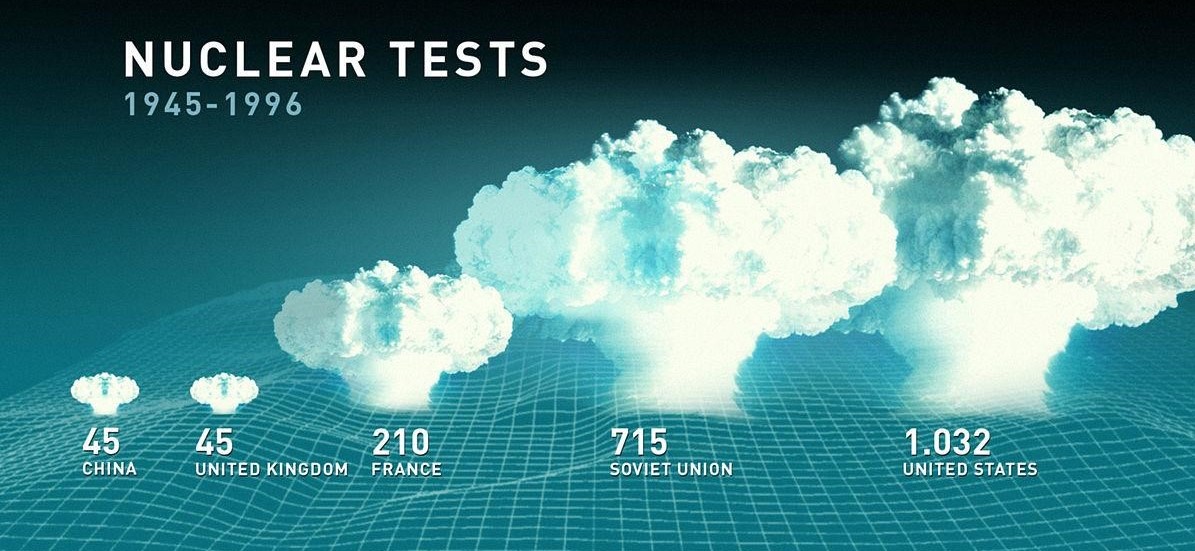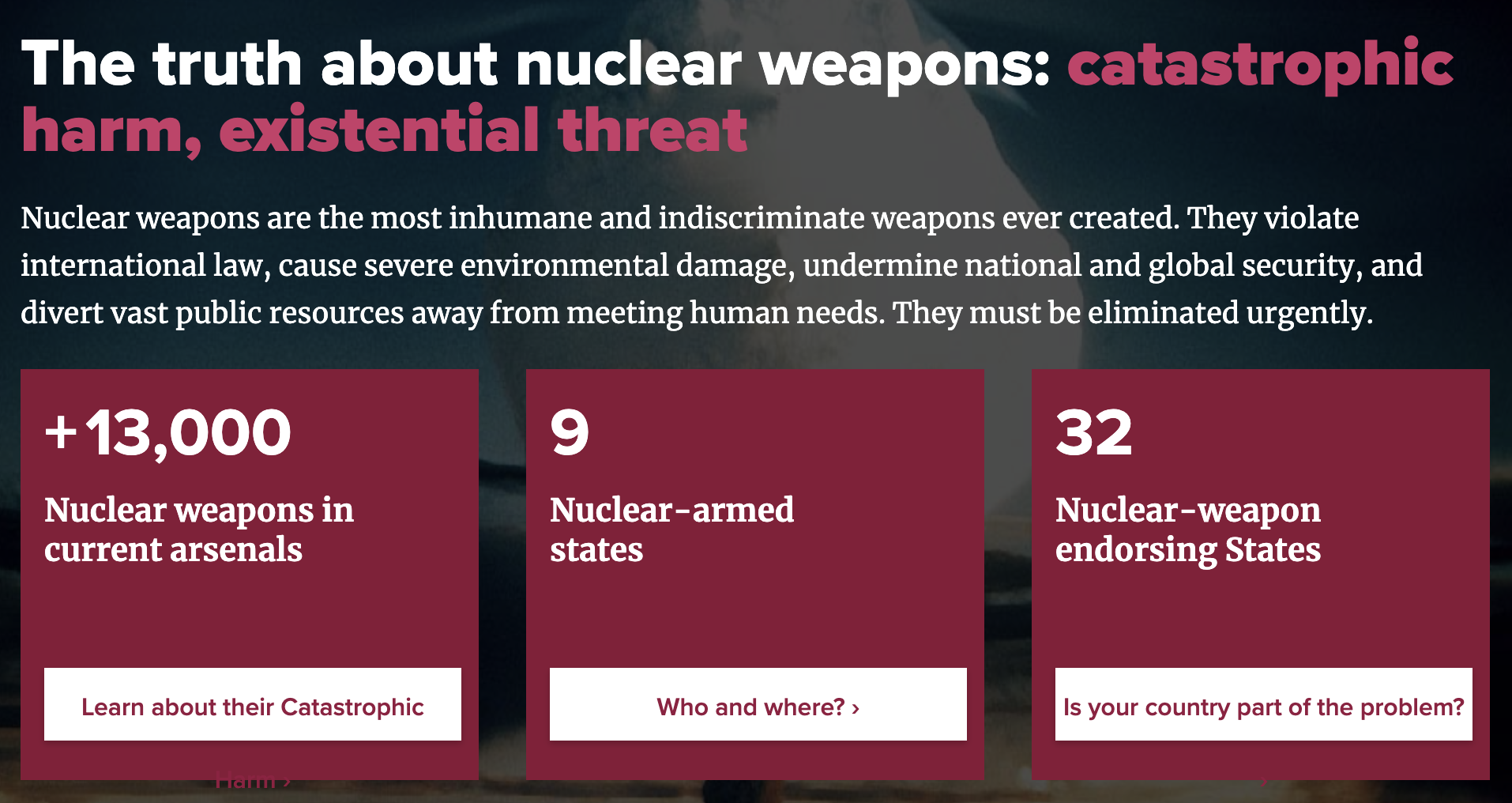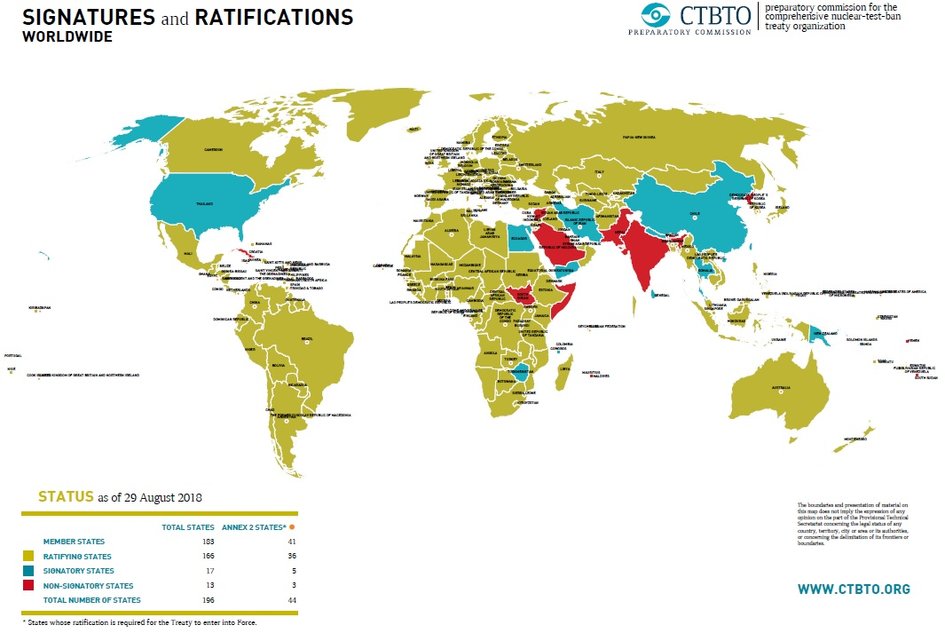On July 16, 1945, The United States of America tested its first-ever atomic bomb in a New Mexico desert and called it Trinity. Not long after, they dropped two bombs on Hiroshima and Nagasaki in Japan. Right off the bat, more than 100,000 people died.
As time passed, even more people died from radiation sickness and cancer. According to the U.S. Department of Energy's records on the Manhattan Project, the total death count reached nearly 200,000.
Today, August 29, the world commemorates the International Day Against Nuclear Tests. Established by the United Nations General Assembly in 2009 to highlight the grave consequences of nuclear testing.

Advocacy groups, governments, and international organizations are making urgent calls for a global moratorium on nuclear testing and for the adoption of the Comprehensive Nuclear Test Ban Treaty (CTBT).
Urgent Calls for CTBT Ratification

Leaders from various nations are urging the eight remaining countries to ratify the CTBT, a necessary step for the treaty to enter into force. Those countries include the United States, China, Egypt, Iran, Israel, North Korea, India, and Pakistan. To date, 185 countries have signed the treaty, but the lack of universal adoption hampers its effectiveness.
Since 1945, more than 2,000 nuclear tests have inflicted suffering on people, poisoned the air & ravaged landscapes around the world.
— António Guterres (@antonioguterres) August 29, 2023
In the name of the victims, I call on all countries to ratify the Comprehensive Nuclear-Test-Ban Treaty, immediately & without conditions.
Public Awareness
Youth can promote International Day Against Nuclear Tests (IDANT) by joining specialized networks like Abolition 2000 Youth Network and CTBTO Youth Group. Educational resources like the CYG online course provide foundational knowledge. Advocacy actions can start locally, such as creating nuclear-free zones in schools. Petitions like the ATOM project offer additional avenues to raise awareness about the humanitarian impacts of nuclear testing.
The Human and Environmental Toll
The effects of nuclear testing are not limited to military and political dimensions. The human and environmental consequences are often catastrophic, affecting generations. Areas subjected to nuclear tests have seen increased cancer rates, genetic mutations, and environmental degradation.
For 30 years, France undertook nuclear testing in the Pacific territory.
— ICAN (@nuclearban) August 27, 2023
In recent years, investigations have revealed the effects of the tests were far greater than France has officially acknowledged. More in the thread🧵 #NuclearBanhttps://t.co/p4qEDy65a9
A Step Towards Global Security
“The cessation of nuclear tests is not just an environmental or humanitarian issue. It's a global security issue,” says Beatriz Fihn, Executive Director of the International Campaign to Abolish Nuclear Weapons (ICAN). She emphasizes that halting all nuclear tests would be a crucial step toward global disarmament and stability.

Looking Ahead
Despite significant progress, the world is still a long way from being free of nuclear threats. Today serves as a stark reminder of the work that remains to be done. Advocates hope that the combined global voice against nuclear testing will be loud enough to catalyze action for a safer, more secure future.
For More Information, Contact
United Nations Office for Disarmament Affairs
(https://www.un.org/disarmament/)
Follow Daryo's official Instagram and Twitter pages to keep up to date on world news.
Comments (0)